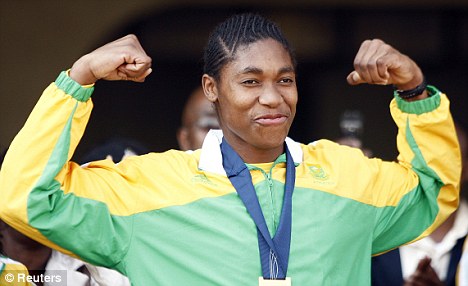South Africa's champion runner Semenya a hermaphrodite
 Sydney - Leaked gender tests on women's 800-metre world champion Caster Semenya reveal she is a hermaphrodite, Australia's Daily Telegraph said Friday.
Sydney - Leaked gender tests on women's 800-metre world champion Caster Semenya reveal she is a hermaphrodite, Australia's Daily Telegraph said Friday.
The Sydney paper claimed a source close to the testing process confirmed that the South African has three times the level of testosterone usually found in a woman.
Semenya has internal testes instead of ovaries and no uterus, the source claimed.
Semenya created a sensation last month when she won the two-lap race at the world championships in Berlin in what was her first major international competition.
Just hours before the August 19 final, the ruling body IAAF said that it had requested a gender verification test for Semenya and that the complicated process had already started ahead of the worlds.
IAAF spokesman Nick Davies said the report was no official statement from the IAAF.
"We have received the results from Germany, but they now need to be examined by a group of experts and we will not be in a position to speak to the athlete about them for at least a few weeks," Davies said. "After that, depending on the results, we will meet privately with the athlete to discuss further action."
The results will not be released officially until November, after they have been checked and Semenya has been informed.
Melbourne University early development specialist Andrew Sinclair said Semenya's condition was complex.
"When we talk about what's male, what's female, we often think of simple boxes as a male always having certain levels of testosterone, having a penis and testes and a female having female genitalia and breasts," he said. "But it's a bit more complicated than that."
Professor Sinclair added: "There's a spectrum and the disorders of sex development lie on this spectrum between what we'd consider normal male and normal female.
And (disorders) are mainly caused because there's a disruption to the normal development of the testes or the ovaries, so they don't always function properly, don't produce the right amount or hormones, and that can give rise to potentially ambiguous genitalia and unusual hormone levels."
He told the paper it was appropriate for a reassessment of how people are characterized for sporting competitions. (dpa)
